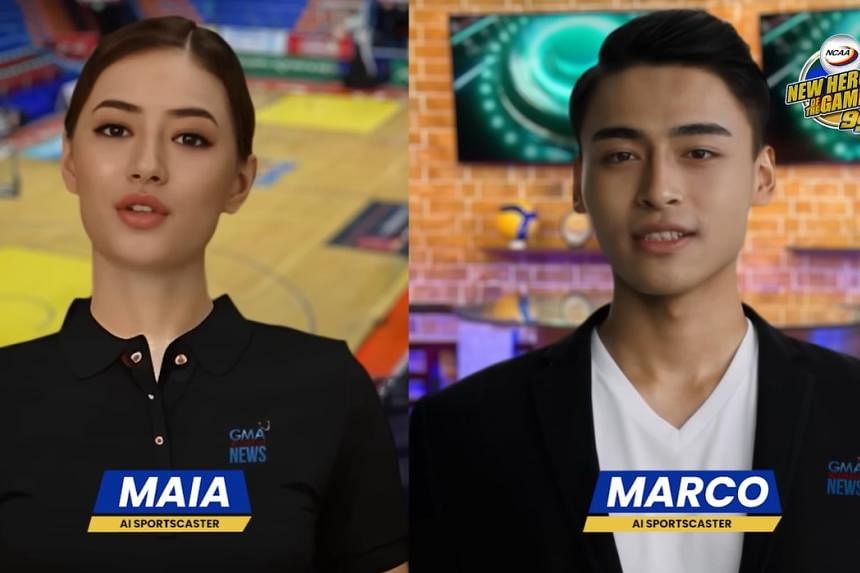OP ED OPINION | ChatGPT | AI sportscasters claim place in Philippine sports, but critics say they lack ‘soul’
The Philippines’ largest TV network is now using AI-generated “sportscasters”, sparking some hand-wringing from sports journalists who believe this leap will only drain the excitement out of sports coverage.
“Maia” and “Marco” were introduced by GMA Integrated News on Sunday, in time for the start of the National Collegiate Athletics Association (NCAA), the Philippines’ oldest collegiate league.
In a 40-second video, the two avatars – which look like an amalgamation of popular celebrities and sportscasters in the Philippines – promised to deliver “the latest news about the biggest leagues and tournaments in the Philippines and all over the world… using cutting-edge advancements in generative AI”.
GMA Integrated news senior vice-president Oliver Victor Amoroso said the use of AI “demonstrates our commitment to innovation in journalism”.
“We embrace emerging technologies to stay at the forefront of the media industry by providing our audience with a modern and engaging sports news experience,” he said.
Reactions to GMA’s pivot to AI were largely sceptical, with many saying that while Maia and Marco were “eye candy”, they both had the “dead eyes” look that betray most AI-generated characters.
Sports journalists said they were more wary of the technology’s impact on sports itself over a future where AI would supplant them.
Former Philippine Sports Commission chairman Noli Eala, who began his career as a sportscaster, wrote on X: “While clearly we have to embrace progress, I wonder how personal and intimate reports can be as compared to the ones given by our local sportscasters. I’m still a traditionalist. I say, NAY!”
Mr Paolo Barcelon, an e-sports broadcaster, said AI avatars “cannot entirely capture the mood, emotion, feeling and excitement of the game”. For instance, the technology cannot yet call the action as it unfolds.
GMA’s Mr Amoroso said the AI sportscasters are not really journalists.
“Maia and Marco are AI presenters,” he said. “They can never replace our seasoned broadcasters and colleagues who are the lifeblood of our organisation.”
Assistant Professor Jeremaiah Opiniano, who teaches journalism at the University of Santo Tomas, told the Philippine Star that generative AI is already being widely adopted in newsrooms.
“I think it is time for Philippine newsrooms, big and small, to carefully study the pros and cons of using artificial intelligence in news work,” he said.
He suggested that instead of wanting to turn back the tide, news organisations should be looking into the advantages of using AI and coming up with measures to roll back whatever “harmful” outcomes it brings.




 Memento Maxima Digital Marketing
Memento Maxima Digital Marketing
 Memento Maxima Digital Marketing
Memento Maxima Digital Marketing






